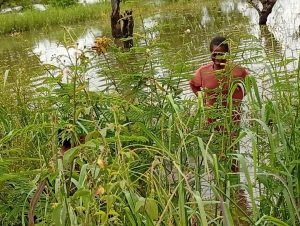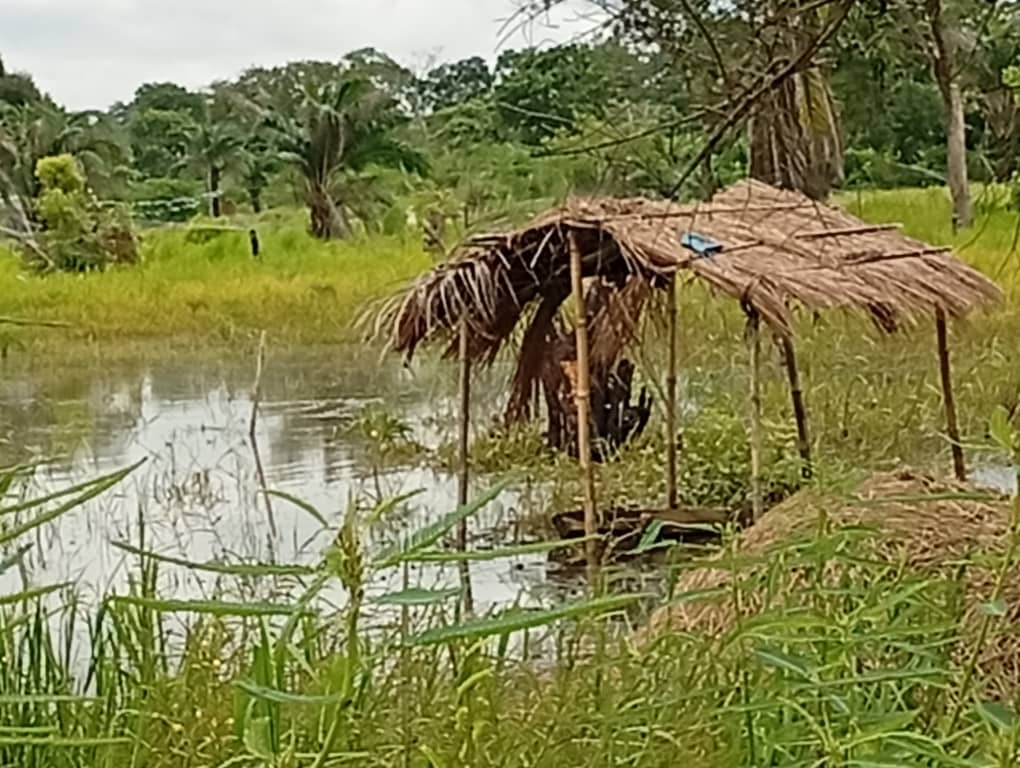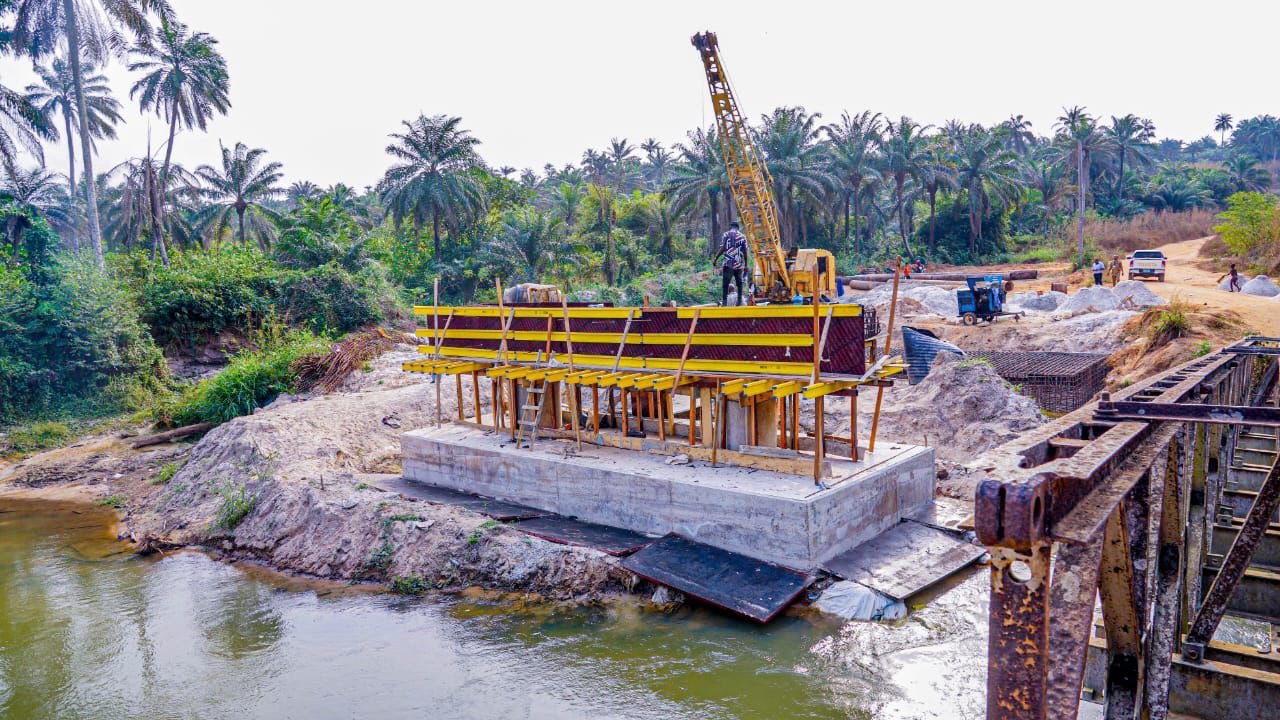One of the submerged farms.
By Anietie Akpan
Torrential rainfall has wreaked havoc in Northern Senatorial District of Cross River State destroying farmlands and houses worth millions of naira.
The Cross River and its tributaries were dangerously overfilled thus sending the flood to farms and houses that have rampaged Ogoja, Yala and Bekwara Local Government Areas (LGA) sweeping away rice plots, yam, cassava and cocoyam farms and others.
Worst hit by the flood are the villages of Adum, Ogba, Izibollo in Ntrigom , Mfuma and Mbora all in South Ukelle wards of Yala Local Government Area and Ezekwe, Okpodon, Wanikade and Wanihem in North Ukelle wards in the same Yala LGA.
Other places hard hit by the flood are Yahe, Aliforkpa, Ekprinyi , Wodah and Etekpa all in the same Yala local Government Area.
Similarly,places like Aladim, Ogoja Ndep, Bansara, in Ogoja were equally impacted by the menacing flood that lasted for over week.
It was stories of woes and lamentation in most of the affected villages visited as the villagers looked helpless and despondent after losing their means of livelihood.
At the village of Adum in Ntrigom, South Ukelle ward, a widow, Madam Cecilia Ugbem said that she lost her husband last year and the impact of the flood this year amount to double tragedy on her.
“Everything I planted is gone. My rice , yam and cassava farms are all gone. For the past three weeks, the water level in the river has continued to rise. We have never experienced a situation like this in this community before . I have lived here for over 50 years and seen all sorts of things but never seen this kind of flood water”.

For over three weeks the water level have remained stagnant with increasing rains making the entire crops in the farms useless as the devastated farmers and villagers have cried out to both the state and federal governments to come to their rescue in terms of food, money, shelter and many others.
The Chairman of the Adum community, Mr Kieran Agara said climate change impact is real as “we hear the cutting down of trees would generate excessive heat but what we are seeing is excessive rainfall and this is inflicting terrible pain on us. We also hear the climate change impact could be forward or backward, that is excess heat or excess rain and here we are, excessive rainfall has dealt with us. There is hardly a day that rain does not fall here and the rain comes in high volume”.
At Yahe, it was the same story of woes. A farmer, Edra Iyaji said the local river which flows into the cross river over flooded its banks three weeks ago and swept away their crops.
He lamented, “as I talk to you now, many of us do not have anything to hold on to. The yams, rice and cocoyam we depended on for survival have all gone. In three weeks time, it will be new yam festival. Tell me what will be our fate?”
At Ogoja Ndep, a largely rice cultivating community, almost all the rice farms have been flooded and Adaji Michael said the rice they tried to rescue are “mainly chaff and worthless…Nobody can eat it. What we are going to experience this year is going to be massive hunger”.
The Director General of the Cross River State Emergency Management Agency (SEMA), Mr Antigua Edem Gill who visited the affected areas with his team, said, “NiMET warned that Cross River is amongst states that would be impacted by severe flooding this year and we went around warning the residents of riverine areas to avoid farming near rivers , but my brother, these people have been farming in these areas for many years without much flooding but this year’s flooding has been unprecedented in some places.
“We are taking statistics and data of those affected and thank God, the National Emergency Management Agency (NEMA), has sent a representative to the state to assess the level of damage . We are appealing to individuals, non governmental organisations and international organisations to come to the aid of our people to help mitigate the impact of the disaster”.
Already, SEMA is undertaking counselling sessions with those affected by the flood disaster to take things easy and avoid taking their own lives or running high blood pressure which could worsen their state, he said











